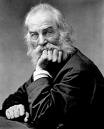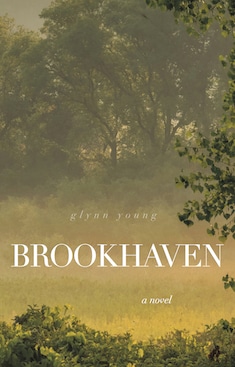 Walt Whitman (1819-1892) has been called “America’s Poet.” When he published the first edition of Leaves of Grass in 1855 (and he kept revising and republishing it for a long time), he changed the direction of American poetry and letters. For decades, some of his poems were memorized in schoolrooms across the United States.
Walt Whitman (1819-1892) has been called “America’s Poet.” When he published the first edition of Leaves of Grass in 1855 (and he kept revising and republishing it for a long time), he changed the direction of American poetry and letters. For decades, some of his poems were memorized in schoolrooms across the United States.
Time has not diminished his work. In many ways, it is a history of 19th century America, and a projection of the 20th century. (An excellent biography is Walt Whitman: A Life by Justin Kaplan.)
For National Poetry Month, here are three by Walt Whitman, one well known and two less well known.
I Hear America Singing
I hear America singing, the varied carols I hear,
Those of mechanics, each one singing his as it should be blithe and strong,
The carpenter singing his as he measures his plank or beam,
The mason singing his as he makes ready for work, or leaves off work,
The boatman singing what belongs to him in his boat, the deckhand
singing on the steamboat deck,
The shoemaker singing as he sits on his bench, the hatter singing as he stands,
The wood-cutter’s song, the ploughboy’s on his way in the morning, or
at noon intermission or at sundown,
The delicious singing of the mother, or of the young wife at work, or of
the girl sewing or washing,
Each singing what belongs to him or her and to none else,
The day what belongs to the day—at night the party of young fellows,
robust, friendly,
Singing with open mouths their strong melodious songs.
Miracles
Why, who makes much of a miracle?
As to me I know of nothing else but miracles,
Whether I walk the streets of Manhattan,
Or dart my sight over the roofs of houses toward the sky,
Or wade with naked feet along the beach just in the edge of the water,
Or stand under trees in the woods,
Or talk by day with any one I love, or sleep in the bed at night
with any one I love,
Or sit at table at dinner with the rest,
Or look at strangers opposite me riding in the car,
Or watch honey-bees busy around the hive of a summer forenoon,
Or animals feeding in the fields,
Or birds, or the wonderfulness of insects in the air,
Or the wonderfulness of the sundown, or of stars shining so quiet
and bright,
Or the exquisite delicate thin curve of the new moon in spring;
These with the rest, one and all, are to me miracles,
The whole referring, yet each distinct and in its place.
Come, said my Soul
Come, said my Soul
Such verses for my Body let us write, (for we are one, )
That should I after death invisibly return,
Or, long, long hence, in other spheres,
There to some group of mates the chants resuming,
(Tallying Earth’s soil, trees, winds, tumultuous waves, )
Ever with pleas’d smiles I may keep on,
Ever and ever yet the verses owning – as, first, I here and now,
Singing for Soul and Body, set to them my name,
Walt Whitman
Library of America published an edition of his prose and poems in 1982.
About the Author
Glynn Young is the author of Poetry at Work and The Dancing Priest series. He is a long-time editor at Tweetspeak Poetry and a retired speech writer who spent much of his professional life at a Fortune 500 company. Brookhaven was inspired by his own family stories of an ancestor—a teen who walked the many miles home after his long, hard days in the Civil War, only to discover that his family was no longer there.
- Poets and Poems: The Three Collections of Pasquale Trozzolo - September 11, 2025
- Poets and Poems: Boris Dralyuk and “My Hollywood” - September 9, 2025
- When You Don’t Speak Czech or German - September 4, 2025

Maureen Doallas says
Some of Whitman’s verses are inscribed in the half-circle of stone surrounding the entrance/exit to one of the Metro stops in D.C. I don’t know how many people read the words. They are very moving.
n davis rosback says
love sigh…
Marcus Goodyear says
My favorite Whitman is Song of Myself (especially part 6), Mystic Trumpeter, and Crossing Brooklyn Ferry.
He is THE great American Poet.
Megan Willome says
Thanks for broadening my Whitman horizons today!